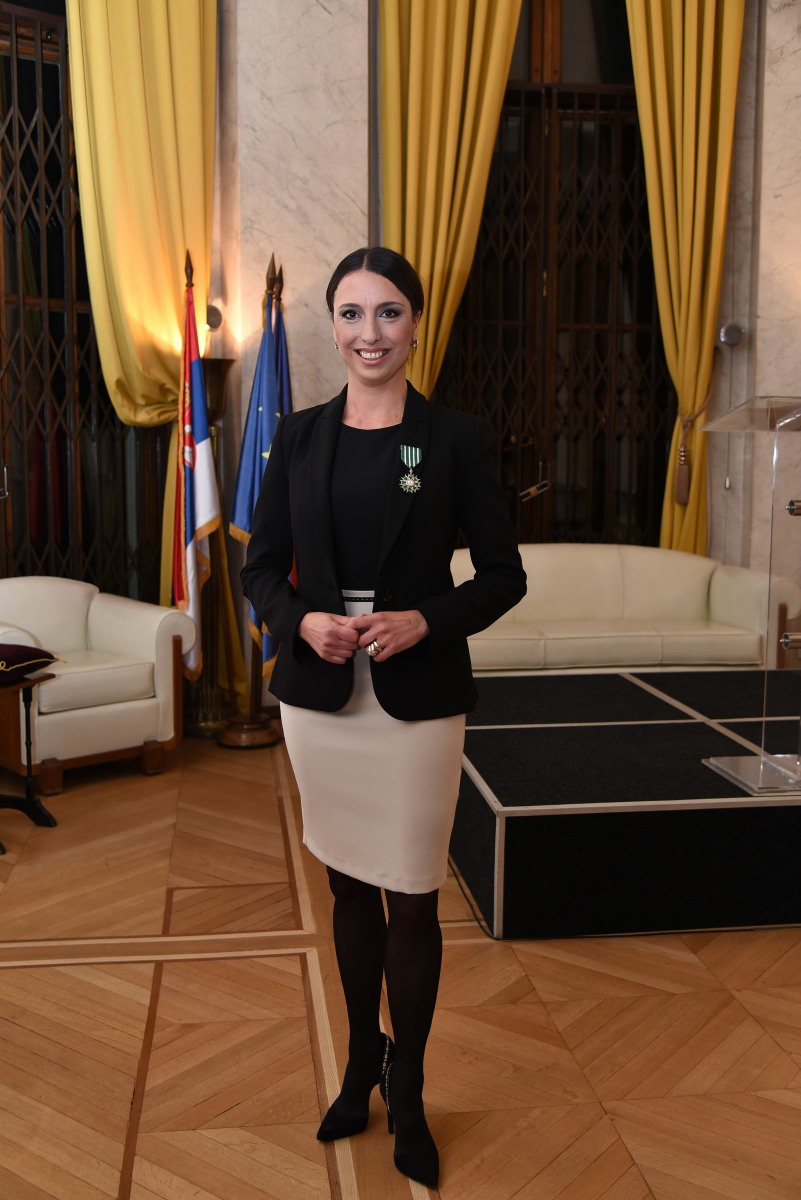Our celebrated ballet dancer and now director of the Belgrade Dance Festival (BDF), Aja Jung talks about beginnings, the peculiarities of modern dance and difficulties she came across in organizing the festival, as well as about the precious change in the awareness of the audience in the last few years.

CULTURAL DIPLOMACY IS THE KING
It is quite clear how much Serbia has to do in order to catch up to the world in this segment of art. Modern dance is very popular in the world and such type of non-verbal communication (‘bodies cannot lie’, as the saying goes) has a strong presence in the biggest cities in the world, as well as in smaller towns, on stages and at festivals. Since my connection to Serbia and Belgrade wasn’t that strong back in the day, I thought that organizing would be an easy task (ignorance makes everything looks easy). I did not rely on strategies because I don’t believe in them. I rather rely on my capability. Several days ago I came back from Israel and I can tell you that this country has what is probably the most important modern dance scene in the world. Israel treats modern dance as its most important export product. You can find in everywhere – from Paris and New York to Tokyo. Their choreographers and dancers participate in global productions and manage big theatres and dance troupes. In terms of the number of productions in the world every year, Israelis definitely take the lead. In a city like Tel Aviv, which has fewer inhabitants that Belgrade, a venue of the size of Sava Centre would not be enough to take in everybody keen on listening to a dialogue about cultural diplomacy. They really do give a lot to culture and it pays off. This is something that we here should also aspire to do.
THE MEASUREMENT IS REVENUE
Yet, when everything is said and done, you have to be profitable. There is no cultural event without profitability in a way. Yorgos Loukos, who was our consultant in the first days of BDI, told me that there was no other gauge of success than good box office. Only when a show is sold out several times in a row, and only when the NY Times or the Guardian report about it, then we can say that it actually exists. Modern dance is modern, just as it name says, and it has role in a certain time which is now. Everything is happening now! We cannot conserve modern dance for future, unlike classic art. We bought 473 airplane tickets for this BDI which is a huge expense. However, we view it as an investment. When dancers come to our festival they subsequently become our ambassadors. Yes, there were some problems in the very beginning. At first, globally renowned dancers like Mikhail Baryshnikov and others did not want to come to Belgrade despite our personal friendship and them liking me. Simply put, we didn’t have enough money or were prestigious enough. We could not offer to them financial conditions. We also could not guarantee enough shows to the Hong Kong Ballet because, for instance, when they go to New York they have 20 shows in a row. Furthermore, we did not have financial attractiveness either. Back in the day, Belgrade was not an important enough to be mentioned in their biographies. It wasn’t prestigious enough. But when BDI brought the Paris Opera, Milan’s Scala, and the Monte Carlo Ballet here, then it became a destination that has earned its rightful place. I like it when they compare me to Mira Trailovic and BITEF, but we do differ in many ways. BDI is a private festival, so, simply put, it would not exist if it weren’t for me. In that respect, everything is quite personalised here. It is a fantastic thing that BDI managed to sell 23,000 tickets, but it is a whole different story how we have managed to do that. In the beginning of BDI, I had to sell my own car and was fighting with my family when they found out how much money I had invested in the festival. I had to find initial capital. However, marketing in culture is a necessity. It has to be contemporary, it has to resonate with younger generations, it mustn’t be rigid or complacent. Also, we have to follow global trends daily and pay attention what is going on elsewhere. We cannot be isolated from the world but follow in the global trends. Only in that way can we remain relevant and mean something in the global framework. And once you mean something, eminent guests will come.